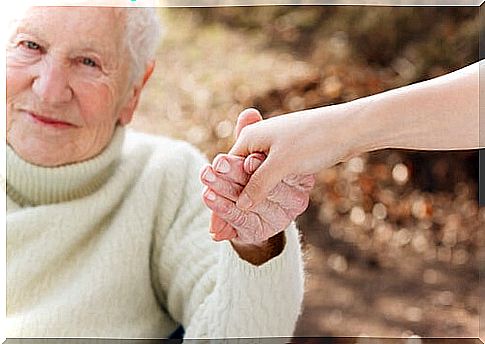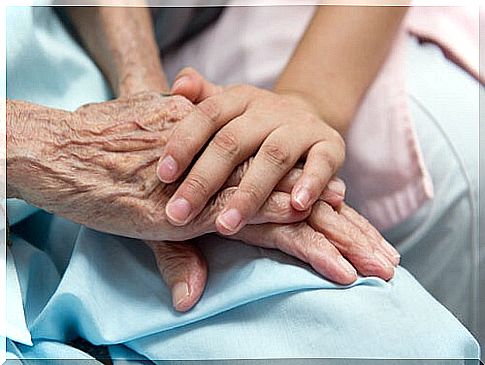Caring For Dependent People

Caring for dependent people is a major challenge on many levels : social, family or individual. Specifically, we are talking about the people who are dedicated to taking care of those who need it most.
In this sense, what does caring mean? What types of caregivers are there? Caring is understood as “providing help to dependent people so that they feel that their physical, social and emotional needs are covered” (IMSERSO, 2009).
It is worth mentioning that there are two main types of caregivers: the formal caregiver and the informal one. The formal caregiver refers to professionals who dedicate their work to this area, mainly technicians in social and health care and nursing assistants. Informal caregivers are the same family, friends or neighbors in some cases.
Rogero defines informal care as “care and attention fundamentally by relatives and close friends, but also by other care agents that are provided altruistically to people who have some degree of disability or dependency”.
According to the World Health Organization (1999), long-term care is mainly carried out by informal caregivers (family, friends or neighbors), health professionals or both, with the aim that the dependent elderly person can have the best possible quality of life, always attending to their individual preferences, autonomy and last but not least, human dignity.

Why is the figure of the caregiver so important?
Encourages basic activities of daily life
When we think of the concept of caregiver, it is perhaps the main idea that comes to mind. The care of dependent people aimed at helping them perform basic tasks such as eating, going to the bathroom, showering, dressing.
In this sense, the caregiver creates a personalized care and attention plan based on particular needs, since the degree of dependency and personal circumstances may vary from one person to another.
Create a climate of trust
Trust is the security that someone has towards another person, about how they will act in certain situations. It consists of having the certainty in how the other is going to act. In this way, perceive a climate where “I feel confident, calm, they take care of me”, which is a fundamental factor for those who receive help and for their families.
In short, the caregiver generates a feeling of trust and security in their environment, both for the person receiving care, who feels safe and protected, and for family members or other family members in the case of the informal caregiver. Therefore, “I know that my family member is in good hands”, “if something happens to him they will detect it quickly and they will act accordingly”.
Offer love and support
The caregiver provides companionship and emotional support to the person cared for. In a world where work occupies a large part of our day, people who are accompanied by someone who cares for them do not feel that loneliness due to the absence of loved ones. Therefore, the caregivers offer them that accompaniment that their family may not be able to give them.
It favors the maintenance of autonomy
Although there is a degree of dependence on the health of the person, the caregiver’s work is important when promoting activities that maintain their autonomy.
To do this, the caregiver encourages and motivates the person to do what they can do, understanding that to achieve this the person sometimes has to make a great effort.

Maintains the link with the environment
Depending on the degree of dependency, the caregiver helps the person maintain, enjoy and take care of their social relationships, since it is essential to avoid isolation.
With the help of new technologies, caregivers can keep them active in their environment, help them participate in certain events and interact with their family group, friends or neighbors in their locality.
Improves quality of life
To conclude, it is necessary to emphasize that the care of dependent people respects the integrity and dignity of people, promoting their autonomy. Day after day caregivers carry out fundamental work as a support to our society; it performs a function that, unfortunately, is not always recognized.
For this reason, in these lines we have wanted to praise the importance of caregivers, both in the professional and family fields. In a way, they become pillars of those who need their help, improving their quality of life.









